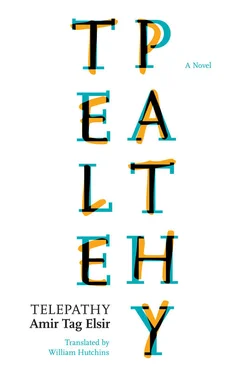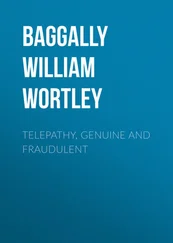I was obliged now to accept my moment of weakness and to respect the snare that neither the man standing before me nor I had endeavored to construct.
I had used his full name in one of my novels. That was certain. I had not known that anyone in the world possessed this precise name. Just two minutes earlier I had felt contempt for him when I wrote his name on the dedication page. A deep-seated certainty had been prancing around inside me then that I had encountered the rare reader who had not been content merely to read a book but had borrowed the hero’s name as his own. I had previously wondered how my hero’s name had come to me. Now, after this surprise, I suspected that I would never reach a conclusion.
I knew a little about theories of telepathy and extrasensory perception — how a person tens of thousands of kilometers away might be able to transmit a message to you. A man in an extreme crisis might send out an SOS and the woman he loved might rush to his rescue. A soldier in a ruinous war caught in an ambush or an oppressed prisoner striving to terminate his persecution, and so forth, might also send out a telepathic SOS.
Why, though, would Nishan Hamza Nishan send me his name telepathically and how could I have received this name when I claim no gift for receiving telepathic messages — unless perhaps I have this talent but hadn’t discovered it yet? Besides, were such theories actually true or were they just speculations that lacked powerful supporting arguments, although they had infiltrated people’s minds?
I have mentioned writing Hunger’s Hopes faster than any previous novel, driven by powerful inspiration, as one road block after another vanished. I had not suffered from any writer’s block worth mentioning, and the events had seemed to form an organic chain that created its own links. In an isolated corner of the lobby of a mid-range hotel, where I felt at home and where I have written most of my books, a splendid Ethiopian waitress named Hasanat kept bringing me black coffee, the way I drink it; but she was forced to remind me frequently that my coffee had gone cold, because I hadn’t even noticed the cup on my table or the charming Ethiopian waitress who brought it. Given all this, perhaps I should not have been surprised to discover now that Ranim’s lover dictated the novel to me, without my realizing it.
Hunger’s Hopes definitely contained many lackluster passages together with flashes of inspiration, powerful scenes and weaker ones, fates that were harsh and unfair, and others that were totally predictable. What I hoped for most now was that its plot would differ from this man’s life story.
“What do you say now?” he asked. His hands had begun to tremble, and his voice acquired a tremolo as he spoke.
“I need more clarification, please,” I replied, or tried to reply. I’m not actually sure, because my voice sounded quite distant.
“I’ll tell you everything,” he offered. His face looked clouded — I could see him but not clearly. The cigarette in his hand had burned down to a stub, but he still grasped it.
The lecture on reflexology ended then, and Najma came out of the lecture hall looking as if she had just been liberated from a long, boring period of incarceration. Professor Hazaz, who was beside her, seemed even livelier than before. He was walking elatedly, handing out his business cards to everyone — even to the people who were busy playing dominoes or who were talking excitedly about racquetball matches.
Najma approached us and greeted me vivaciously, touching me on the left shoulder. She extended her right hand languidly to Nishan Hamza, who told me in a brief aside that he would wait for me outside. The professor greeted me quickly and then departed. Najma chatted for several minutes, but I didn’t retain much of her chatter. As she left, she asked me to comment on what she was going to write on her Facebook page: “Your comment is important, Master.”
I didn’t feel she was captivating just then and felt no desire to read her post about a lecture that had quickly bored me. All I wanted was to find the solution to the puzzle that had suddenly popped up before me. If this suggestion of telepathy had surfaced while I was writing Hunger’s Hopes , I definitely wouldn’t have published a novel by this name.
It was a little past ten p.m., and I was extremely tense as I drove my jalopy through the virtually empty streets of the capital, not knowing where I was going.
The car radio was tuned to the national broadcasting station, and a politician from the ruling party was talking about the great revolution awaiting the nation after gold was discovered in numerous regions and the great economic progress, encompassing all citizens, that would soon occur. I scarcely heard him. Nishan Hamza sat silently next to me, staring at the road without focusing on it. He returned from time to time to the same folded page of Hunger’s Hopes . He would read a little and then close the book.
He had felt it necessary to speak to me, and I needed that conversation even more than he did. He wanted to share a secret with me. I wished his secret could be broadcast now on the radio instead of forming part of a conversation studded with useless small talk.
I couldn’t sit with him in some coffeehouse, whether one I frequented or one I didn’t, because by this rather late hour all the coffeehouses had closed. I couldn’t go with him to my house, because I was afraid of taking a lunatic there — and that’s what I thought he was. He might become enraged and kill me in a frenzied moment, and I would die pointlessly. Even if he weren’t a lunatic and didn’t harm me, I didn’t want anyone to know how to find my house, which I mentioned I have fortified carefully to protect my seclusion. I couldn’t just drive around like this expecting him to talk, because I don’t absorb things when I’m driving. Besides, I was perturbed and definitely needed a place where we could sit and talk while trying to relax so I could calm down.
The shameless politician concluded his radio interview. Now they were broadcasting “The Migratory Bird” by the genius Mohammed Wardi, and I sensed the song’s brilliance for the first time.
Observing that my companion had suddenly put his hand in his pocket to search for something, I was alarmed. An acid reflux attack ensued and my breathing almost stopped. His hand finally emerged, however, grasping the old pen without a cap, and he wrote some type of note at the bottom of the page with the folded corner.
Two weeks before my trip, my brother Muzaffar had visited me, although as I have mentioned his visits don’t involve me much, because he doesn’t spend a lot of time with me. He would not return for six months, but now I wished he would show up so I could forcibly enlist him in my predicament. I would oblige him to shield me or at least volunteer some sensible opinion. Naturally I could have informed one of my close friends — I actually thought about that. I scratched this notion, though, at least until I fully understood what sort of crisis I faced, because perhaps there was really no crisis whatsoever. It might have been one of those pranks we encounter from time to time. I might have endured something much worse than this before but couldn’t remember now.
I was surprised when Nishan spoke. His eyes weren’t directed toward me, and his voice was odd. It was the quavering voice of a feverish man. “Where are we going, sir? I think you’ve been driving for more than an hour and seem to have no intention of stopping.”
I had no ready answer for his question. I really had been driving without any destination or any interest in finding one. I looked around to get my bearings and was astonished to find myself in the Railroad District, near the central train station. This was where my spiritual mother, Malikat al-Dar, lived. Actually I was almost in front of her house. I had no idea how I got there. Some invisible rope seemed to have dragged me. All the same, I felt a certain degree of relief, because my spiritual mother’s house was my second home, which I visited whenever I wanted a mother figure, the scent of a mother, or food prepared by a mother. It wouldn’t seem odd for me to arrive now with a guest, because I had done that frequently, most recently two months earlier when I brought a former storyteller named Isma‘il. I had wanted some information about the capital’s ancient history. He had refused to provide these clarifications until after a repast of traditional home cooking. Malikat al-Dar’s house had been virtually the only place where I could find an old-fashioned meal.
Читать дальше












